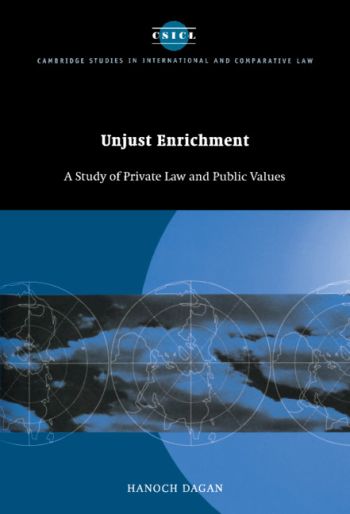
This book is a sophisticated comparative analysis of the doctrine of unjust enrichment in the North American and Jewish legal systems, and in international law. By offering an explanatory theory which brings to light the normative underpinnings of the doctrine, it facilitates the prediction of legal outcomes and supplies the necessary tools for evaluating existing legal rules. Applying both theoretical analysis and comparative legal techniques, the study claims that the choice of compensation arising from a claim of unjust enrichment is not a matter of legal technicality. Instead it describes how the legal choice of a pecuniary remedy can be seen to embody a choice between competing values. This decision, writes Dagan, is implicated in the prevailing background ethos of the society at issue, and is deeply influenced by its own complex conceptions of self and of community.